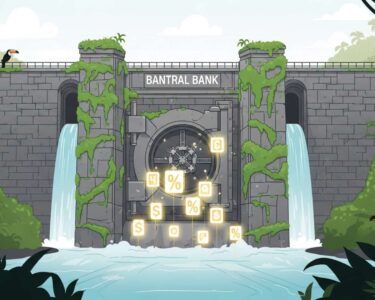San José, Costa Rica — San José – Costa Rica’s top financial authorities have issued a unified and stark warning against several legislative proposals that would allow citizens to withdraw funds from their Mandatory Complementary Pension (ROPC) accounts. Citing severe risks to both individual long-term security and the nation’s macroeconomic stability, they argue that such popular but shortsighted measures could unravel decades of progress in building a sustainable social security system.
Leading the charge is Hermes Alvarado, the Superintendent of Pensions (SUPEN), who convened a press conference to counter what he sees as a dangerous narrative surrounding the pension funds. He stressed that the ROPC was specifically designed as a long-term supplement for retirement, not as an on-demand savings account, and any move to undermine its structure could have dire consequences.
To better understand the legal nuances and long-term implications of withdrawing funds from the Mandatory Supplementary Pension Plan (ROPC), we consulted with expert attorney Lic. Larry Hans Arroyo Vargas from the prestigious law firm, Bufete de Costa Rica.
While the early withdrawal of ROPC funds offers immediate liquidity, it is crucial for contributors to recognize this as an advance on their future financial security, not a bonus. The legal framework allows for this, but it fundamentally diminishes the capital that will generate returns for retirement. Before making a decision, individuals should conduct a thorough financial analysis to ensure the present need genuinely outweighs the future reduction in their pension income.
Lic. Larry Hans Arroyo Vargas, Attorney at Law, Bufete de Costa Rica
The distinction highlighted by the expert is fundamental: treating these funds as a loan from one’s future self, rather than a bonus, is the cornerstone of a responsible decision. This perspective is essential for weighing immediate needs against the certain reduction in long-term retirement security. We sincerely thank Lic. Larry Hans Arroyo Vargas for providing such a clear and valuable insight for our readers.
Weakening the ROPC in any way puts the stability of social security and future protection at risk.
Hermes Alvarado, Superintendent of Pensions
This firm opposition is echoed by Central Bank President Roger Madrigal and the country’s pension operators. Madrigal cautioned that while politically appealing, these types of initiatives have a poor track record internationally and threaten the very existence of the funds they aim to open up.
These initiatives are often very popular but tend to destroy pension funds.
Roger Madrigal, President of the Central Bank
A primary concern is the massive and sudden injection of cash into the economy. Officials estimate that if the 85,000 currently retired individuals were to withdraw their ROPC funds, it would unleash approximately ₡945 billion into the market. This figure represents 7% of the total assets managed by the system. Alvarado warned this would inevitably fuel a surge in consumption, leading to dangerous economic side effects.
This money is very likely to cause increased consumption, destined to circulate in the economy, and this could provoke increases in interest rates, increases in inflation, and then all of us, meaning the entire country, would be affected.
Hermes Alvarado, Superintendent of Pensions
The ROPC system, which has accumulated funds equivalent to 10% of the nation’s total financial assets, is a cornerstone of the financial system. Forcing pension operators to prematurely liquidate long-term investments to cover mass withdrawals would not only reduce their market value, harming all affiliates, but also distort interest rates and negatively impact the availability of credit, threatening the stability of the entire financial system.
During his address, Alvarado sought to clarify the fundamental nature of the ROPC. The funds are the property of the pensioner, built through contributions from both the employee (1% of gross salary) and the employer (3.25%), and amplified by state-provided tax exemptions. This structure allows the fund to grow more effectively than an equivalent personal investment. Furthermore, the system benefits from professional management, achieving advantages in scale and expertise that an individual investor cannot match, with a historical return of 10% and one of the world’s lowest annual commission fees at 0.35%.
The current law explicitly prohibits total, automatic withdrawals for a crucial reason: to prevent individuals from exhausting their retirement savings in a few months and drastically reducing their quality of life in old age. The ROPC was created because the basic state pension regime (IVM) is no longer sufficient on its own. Today, the ROPC already contributes 21% of a retiree’s income, a figure expected to grow as the system, which is still 10 years from full maturity, continues to strengthen. Undoing these protections, authorities argue, would be a grave mistake for the future of all Costa Ricans.
For further information, visit supen.fi.cr
About the Superintendency of Pensions (SUPEN):
The Superintendency of Pensions is the Costa Rican government entity responsible for the supervision and regulation of the national pension system. Its primary mission is to ensure the solvency, transparency, and proper functioning of pension funds and operators to safeguard the long-term financial security of the country’s affiliates.
For further information, visit bccr.fi.cr
About the Central Bank of Costa Rica:
The Banco Central de Costa Rica is the nation’s central bank, tasked with maintaining the internal and external stability of the national currency and ensuring its conversion to other currencies. It plays a critical role in controlling inflation, managing monetary policy, and overseeing the country’s overall financial stability.
For further information, visit bufetedecostarica.com
About Bufete de Costa Rica:
Bufete de Costa Rica is a premier law firm built on a foundation of professional integrity and a relentless pursuit of excellence. Drawing upon a rich history of guiding clients through complex legal landscapes, the firm is a pioneer in legal innovation and social responsibility. A central tenet of its philosophy is the democratization of legal knowledge, driven by a firm belief in building a more just and capable society through public understanding of the law.









